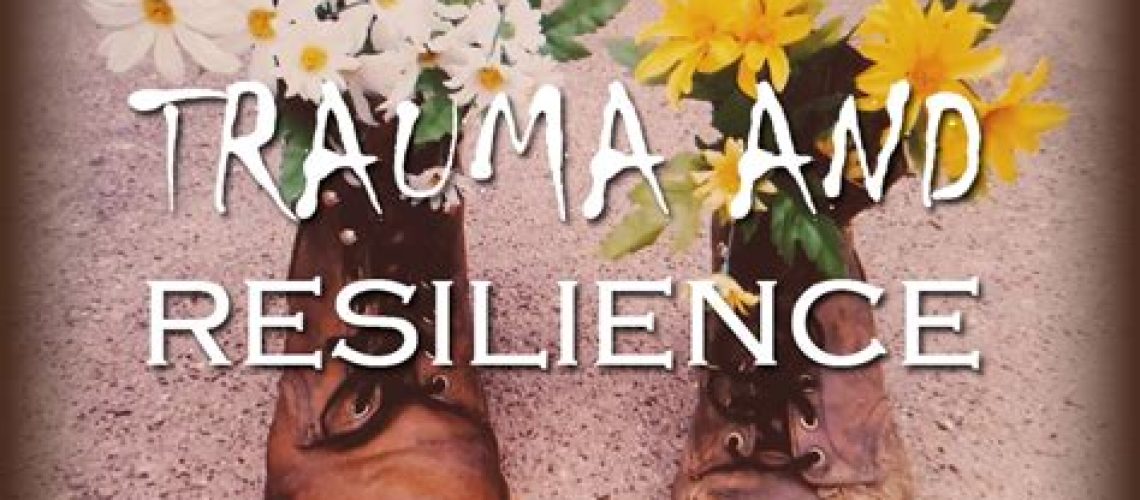By Lora Heller
The past couple years have been traumatic for so many of us, as a result of the Covid pandemic, coupled with and followed by job loss, virtual schooling, illness often leading to loss of lives, and crime. The continued spike in crime, specifically the tragic mass shootings happening around the country, clearly add to the anxiety, fear, and other related symptoms of trauma. The nature of a traumatic event is not completely generalizable. Psychological resilience, family dynamics, culture, religion, spirituality, age, and other such factors play a role in the variety of responses to a potential trauma. Everyone has their own level of pain tolerance, including not only physical pain, but also emotional and mental pain. With spikes in Covid and crime come spikes in loss and grief. For some people, feelings of loss can be completely debilitating, and don’t appear to improve even as time passes. This may be considered ‘complicated grief’ or ‘persistent, complex bereavement disorder.’ In such complicated grief, painful emotions are so long lasting and severe, that recovering from the loss and resuming one’s own life is extremely challenging. Loss of a loved one is a traumatic experience and not everyone moves through the stages of grief in the same order or at the same pace.
The DSM defines TRAUMA as exposure to actual or threatened death, serious injury, or sexual violence by direct involvement in the traumatic event(s) or witnessing, in person, the traumatic event(s) as it occurred to others. We know that trauma can be an emotional event as well, without specific or obvious physical violence, but rather caused by verbal aggression, neglect, or emotional abuse. When trauma occurs, chemical neurotransmitters trigger the emotional side of the brain, disconnecting it from the part that controls cognitive processing and reasoning. VICARIOUS trauma is an intense reaction to being exposed to someone else’s trauma story or the details of the traumatic event. RESILIENCE is the ability to bounce back, recover, or renew oneself after a loss or traumatic event.
How do you know if you, your child, or another loved one may be experiencing trauma? According to the APA, symptoms can include (but are not limited to):
- feeling nervous, jumpy, or on ‘high alert’
- irritability
- sweating, shortness of breath, rapid heart rate
- stomach aches
- difficulty sleeping
- nightmares
- flashbacks and/or intrusive memories
- difficulty feeling positive emotions
- fear or avoidance of people, places, activities, or thoughts associated with the traumatic event
Long term post-traumatic stress may be less likely to develop when positive supports are in place. What are some ways to deal with trauma?
One option is music as therapy. We can use music as a way to cope, to explore identity, express intense emotions, foster a sense of belonging. The impact of music is powerful. It’s more than just a feeling; it’s an actual change in neurological activity in your brain and can be long-lasting. Trauma can influence a child’s brain in a way that locks them into survival mode: ‘fight or flight.’ Music can help to open the pathways that allow for more critical thought, decision making, and emotional development.

On your own, listening to preferred music can be helpful. Singing releases endorphins which can lift mood and provide a sense of catharsis. With a music therapist, a treatment plan can be prescribed to include improvisation (drum circles and more – a steady, grounding beat can be especially helpful in trauma-informed work), composition (songwriting), receptive music (listening and discussing), and/or re-creative music (singing/playing familiar songs). Dealing with traumatic memories is something that music therapists can help navigate with our unique understanding of music, the brain, and memory, even when traumatic memories are triggered by a particular song or piece of music. Music therapists can adapt lyrics, instrumentation, tempo, and dynamics to help regulate and support an individual’s unique physiological response to trauma.
Our teachers at Baby Fingers who are not music therapists are also acutely aware of the use of music in emotional regulation and creating a safe space. We incorporate routine and ritual so that our participants know what to expect. We include familiar songs that can foster a sense of security and contentedness.
Additional ways to cope with and process trauma include:
- validating your experience and reaction; reminding yourself that what you’re feeling is real and justified can be a step towards resolving your trauma response and coping with the experience
- joining local support groups can help to realize that you’re not alone
- finding professional support, which could include a psychotherapist, a music therapist, a social worker, etc.
- seeking personal support from friends and family members, which could include talking about the events and/or engaging in safe, enjoyable activities that help to normalize life
- monitoring for ongoing symptoms
- journaling – this can be related to the trauma or any thoughts, poems, feelings that occur
- engaging in self-care – this can include making music or art, exercise and mindfulness (yoga, meditation, walking, bike riding), bubble baths, disconnecting from social media, reading a book, spending time with friends and family you trust
Hotlines for Survivors of Violence and Trauma (<–click)
Others:
National Alliance on Mental Illness www.nami.org 1-800-950-NAMI (6264)
If you feel suicidal or you’re in a crisis situation and need immediate assistance, people at these suicide hotlines in the U.S. are there to help.
- 1-800-273-8255 (1-800-273-TALK) – National Suicide Prevention Lifeline
- 1-800-784-2433 (1-800-SUICIDE) – National Hopeline Network
- 1-866-488-7386 (1-866-4.U.TREVOR aimed at gay and questioning youth)
In July, national suicide hotline will be launched: dial 988. Additional suicide information and resources.
Post navigation

